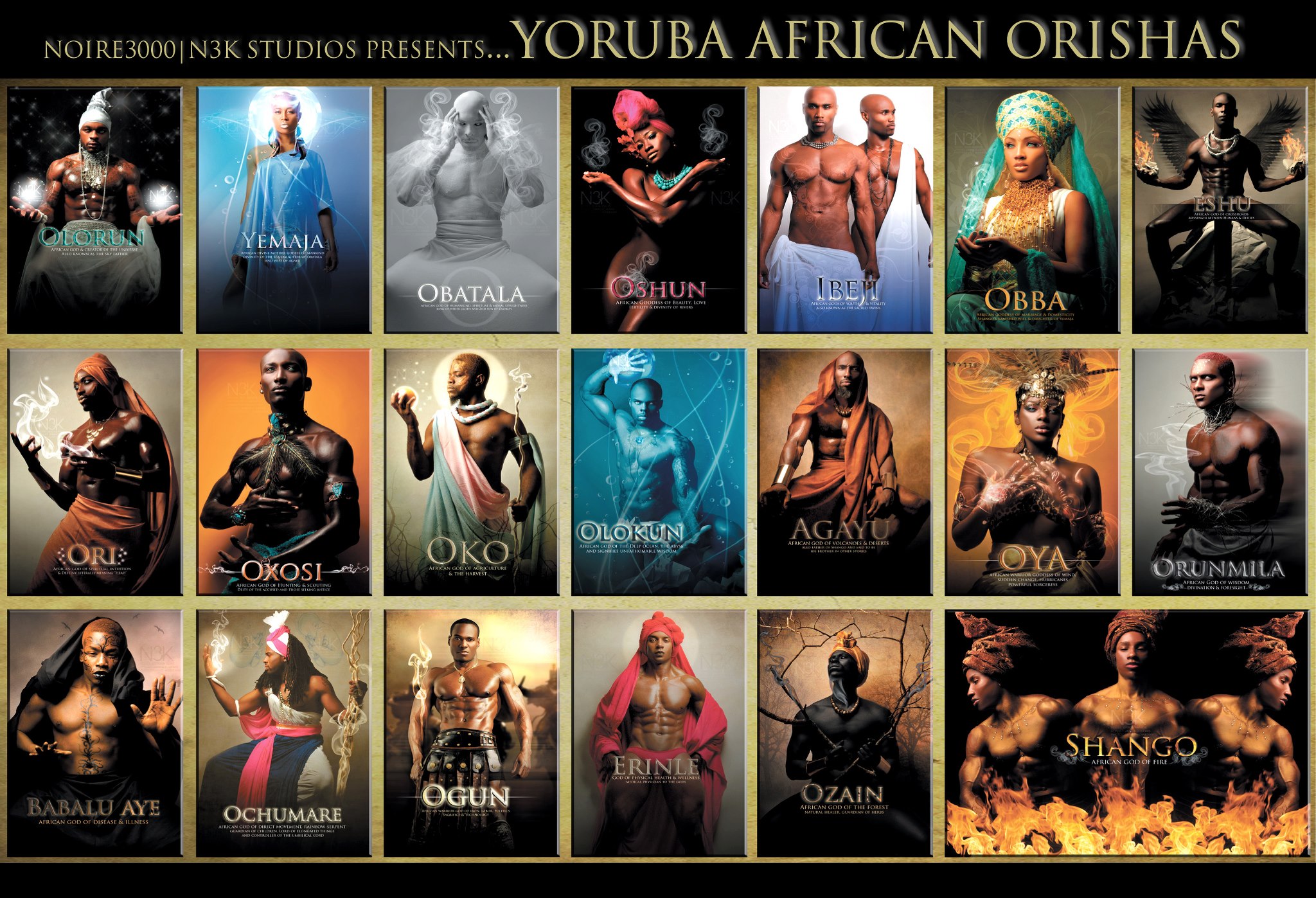Stirrings and whisperings in my soul tell me tha to write about the Orishas/Loas. There is a real problem with greed in humanity among too many of those who believe in this diaspora. My 9/12 Exorcism blog gives a summary of when i found These Awesome souls @ http://citedinfo.blogspot.com/2017/09/my-911-exorcism-led-me-to-find-out-its.html My next challenge is for Them so i will elabarate in future blogs.
The Voodoo Loa or African diaspora Who are considered as Servants in between God and mankind are some of the oldest "gods". They really aren't considered as gods but the word makes it easier to express, and They are Who i believe in. To me, They are Forces of Nature Who have been given a face while others claim the Loas or Orishas were people who lived lives and are Great Souls now. Even if They are Thought Forms They are Ancient & Powerful. Older than the Egyptian gods and more pure in that none have evil traits. I am sure that it is mixed. Nevertheless, it really doesn't matter where They come from, They are awesome.
I am sure that knowing the ancient rites is beneficial, but a great price is put on this knowledge so that people are getting rich from what the Orishas do to help. I sense great sadness that people have put greed above the Loas. The Orishas are a great part of Voodoo's power, not the rituals. I hear from Them that anyone with a pure heart and good intentions can work with Them on a Spiritual level. Many people do fear and promote fear of the Loas, but They really aren't bad at all. I know that They have changed my life for the best. Papa Legba or Esu should always be approached first when we decide to work with this diapora. He is kind and forgiving so there is nothing to fear from Him unless a person means to harm others or disrespect Papa Legba/Esu.
They don't play games or put up with bullshit. These Powers Care and humans are hiding them from GREED....so They must find who seeks not fame and fortune...moi 
Wikipedia says
Number[edit]
Yoruba tradition often says that there are 401 orishas, which is associated with a sacred number. Other sources suggest that the number is "as many as you can think of, plus one more - an innumerable number". Different oral traditions refer to 400, 700, or 1,440 orisha.[3][4][1]
Beliefs[edit]
Practitioners traditionally believe that daily life depends on proper alignment and knowledge of one's ori. Ori literally means the head, but in spiritual matters, it is taken to mean a portion of the soul that determines personal destiny and success. Ashe is the life-force that runs through all things, living and inanimate. Ashe is the power to make things happen. It is an affirmation that is used in greetings and prayers, as well as a concept of spiritual growth. Orisha devotees strive to obtain Ashe through iwa-pele or gentle and good character, and in turn they experience alignment with the ori, what others might call inner peace and satisfaction with life. Ashe is divine energy that comes from Olodumare, the creator deityand is manifested through Olorun, who rules the heavens and is associated with the sun. Without the sun, no life could exist, just as life cannot exist without some degree of ashe. Ashe is sometimes associated with Eshu, the messenger Orisha.[5] For practitioners, ashe represents a link to the eternal presence of the supreme deity, the Orishas, and the ancestors.[6]
The concept is regularly referenced in Brazilian capoeira. "Axé" in this context is used as a greeting or farewell, in songs and as a form of praise. Saying that someone 'has axé' in capoeira is complimenting their energy, fighting spirit, and attitude.
Pantheon[edit]
The orisha are grouped as those represented by the color white, who are characterized as "cool, calm, gentle, and temperate"; and those represented by the colors red or black, who are characterized as "harsh, aggressive, demanding, and quick tempered". As humans do, orisha may have a preferred color, foods, and objects. The traits of the orisha are documented through oral tradition.[4] " https://en.wikipedia.org/wiki/Orisha

No comments:
Post a Comment